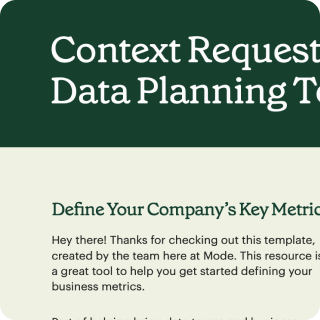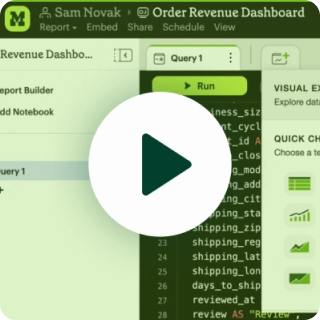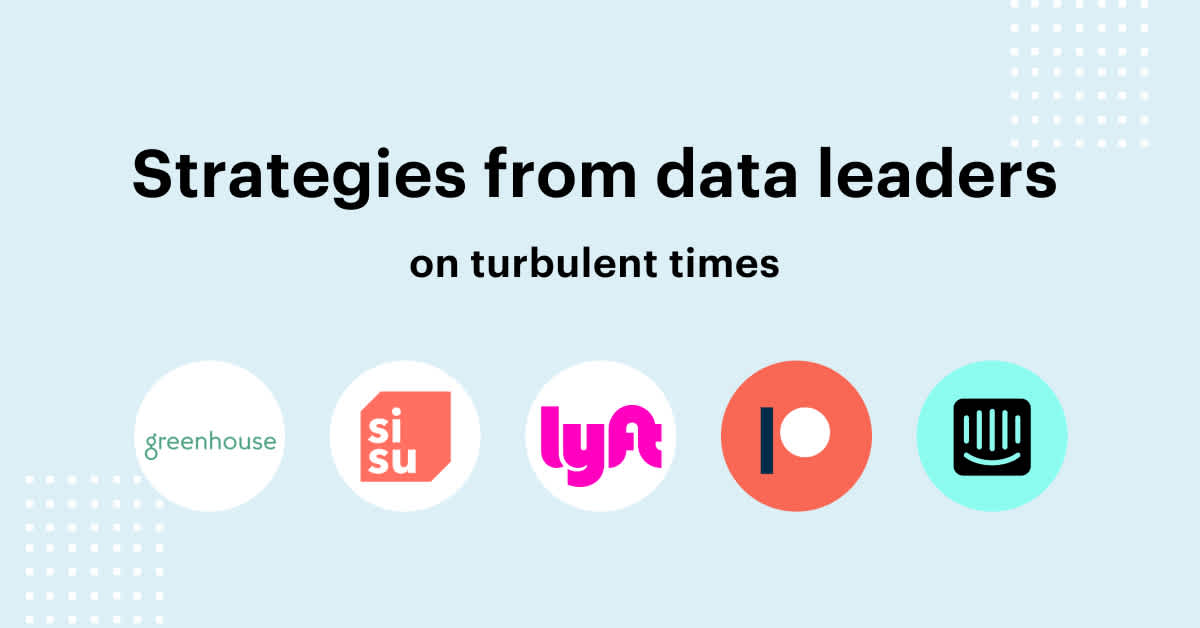Happy May!
Each month, we share notes that summarize Mode enhancements and bug fixes. This month, we’d also like to share more details of ways we’ve recently enhanced Mode’s analytics workflows and made it easier to manage and share within large organizations.
As you may imagine, the developers, designers, and marketers of Mode are heavy users of our own product. This means it’s a high priority to continuously ship new improvements, and we have a personal stake in ensuring these features work reliably and quickly.
Analytics workflow enhancements
Data professionals demand and deserve control over their working environment. We know that you, and we, prefer tools that can both catalyze discovering insight and get out of the way as appropriate. That’s why we’ve added personal preferences to the SQL Editor to give you control over two features.
SQL autocomplete
Now, you can control certain behaviors of the SQL autocomplete pop-up. Choose which objects appear in the pop-up, how many characters you must type before the pop-up appears, whether to complete SQL keywords in UPPERCASE—or disable the autocomplete feature entirely.
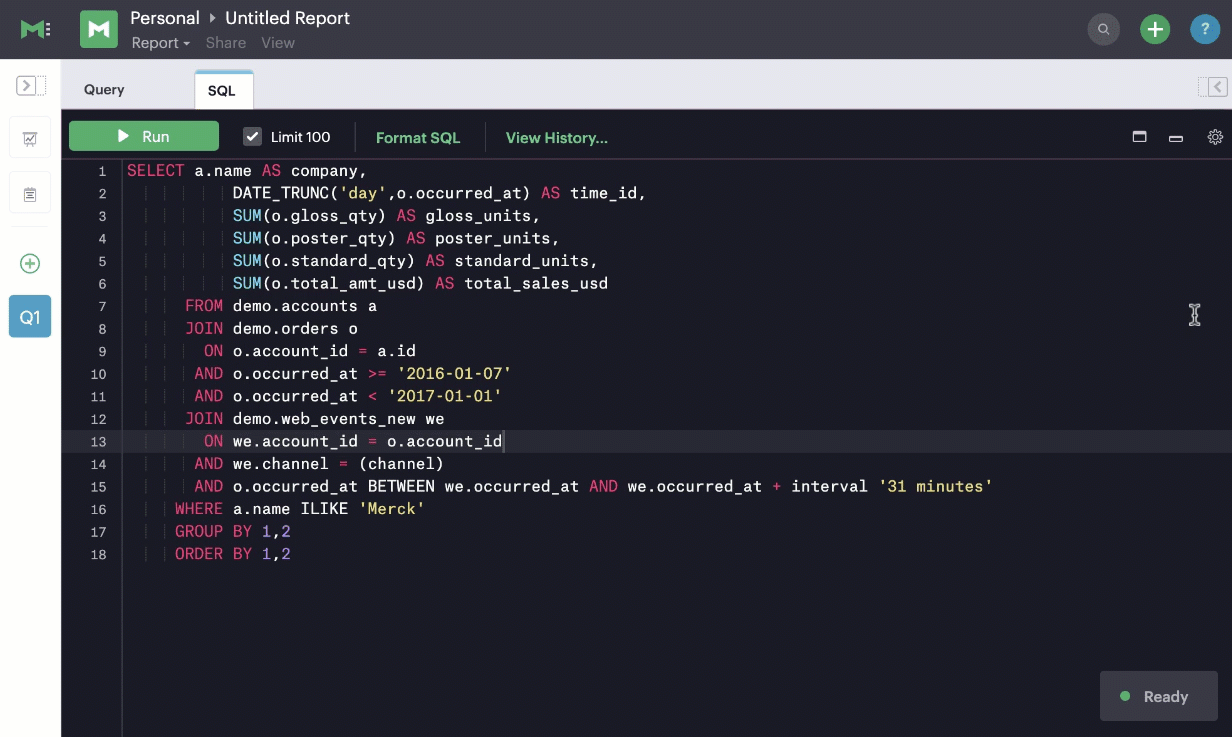
Limit 100 checkbox
If you always want a new query to return all possible results, now you can choose to un-check the “Limit 100” checkbox by default for all new queries and reports.
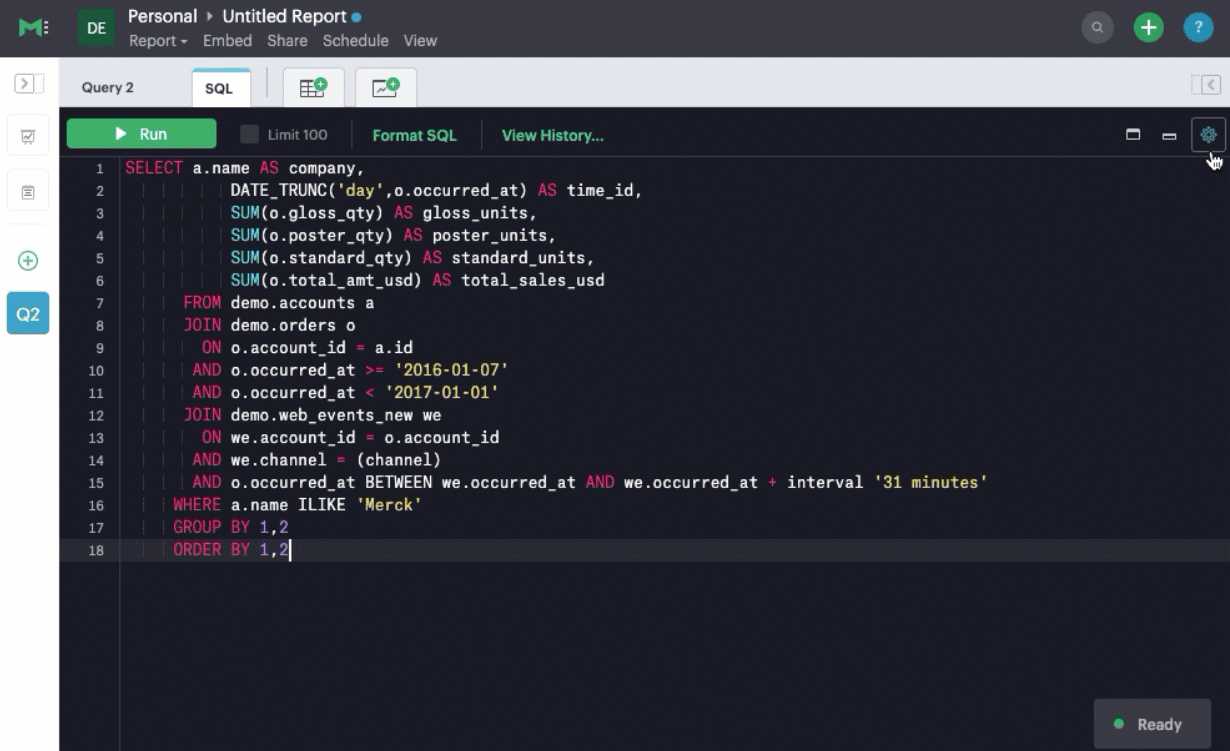
These personal preferences affect only your Mode user account, and they’ll persist regardless of which report you’re editing.
We’ve also improved the ergonomics of editing reports by making some existing features more usable and discoverable. You’ll notice these updates in toolbars, starting with the Report Builder.
Report Builder toolbar
When building reports and dashboards, you’ll find it easier and faster to choose from available themes, convert your dashboard to “full-width,” and add visualizations.
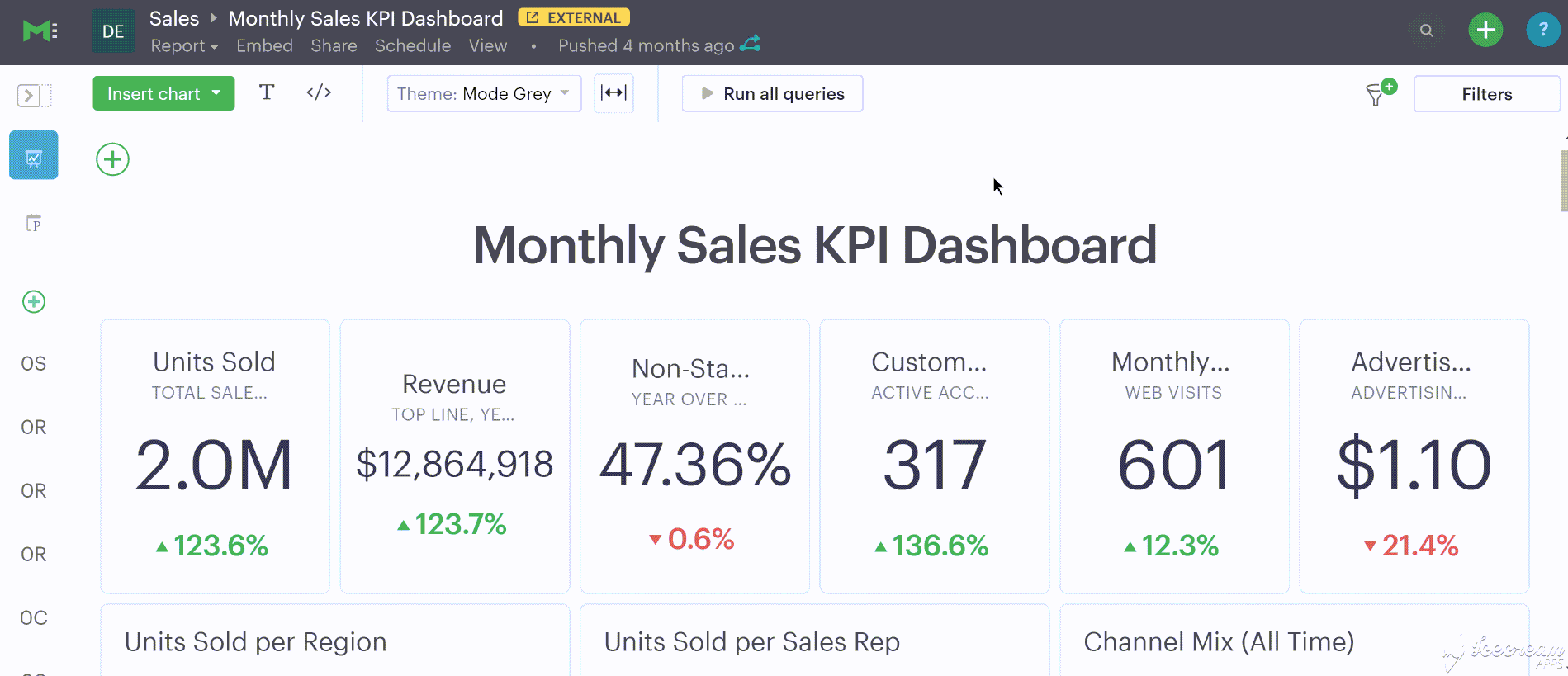
Improved management and sharing within large organizations
Growth is a good thing, especially when we can remove growing pains. We’re constantly working to ensure that our customers can manage their Mode organizations as they add hundreds and even thousands of new users. We’ve observed two recurrent themes in customer requests. The first surrounds distributing Mode content; the second involves better member management.
Improved Slack sharing
One of the most important parts of our users’ workflows is sharing their analysis and results with colleagues using Slack. We’ve updated the channel dropdown to improve performance for teams with thousands of channels, resolving several issues with freezing and long load times to remove friction when sharing to Slack.
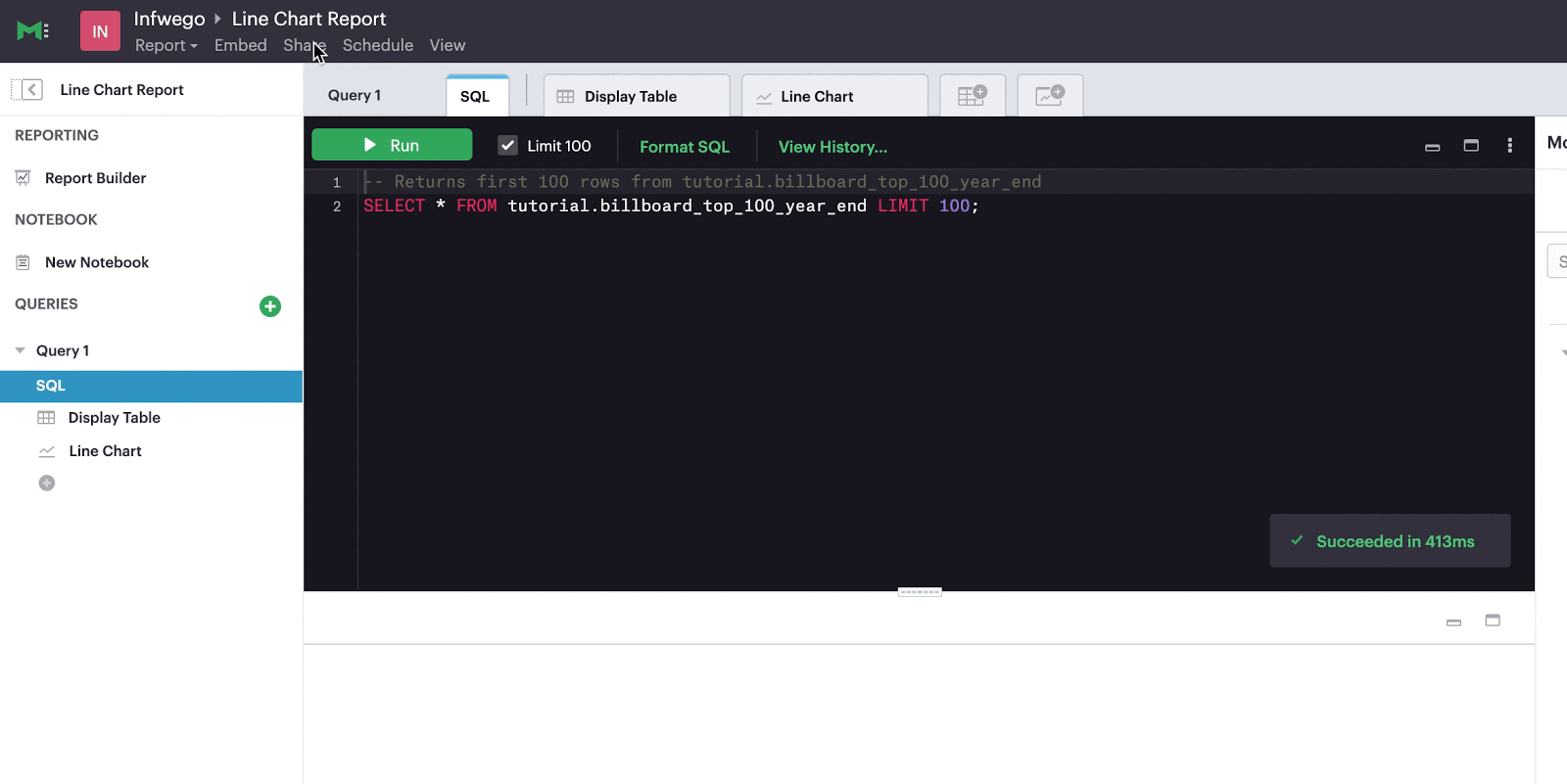
Report scheduling improvements
We also made several usability updates to our Schedules page to make it easier to search, edit, and manage your organization’s report schedules. The schedules list is now ordered alphabetically by report name, and all schedules are grouped under the corresponding report. Additionally, you can now manage schedules directly from organization settings, rather than having to navigate to each individual report.
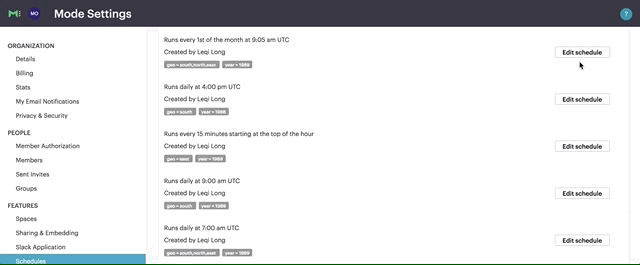
Easier member management
We love that so many of you are introducing more internal teams to Mode. With more teams come more users—and the need for robust member management. Now, users can search for members across all status types, and it’s easier to filter for former members or those who have requested to join your org. We also have introduced new user status types to categorize users with outstanding or cancelled invitations.
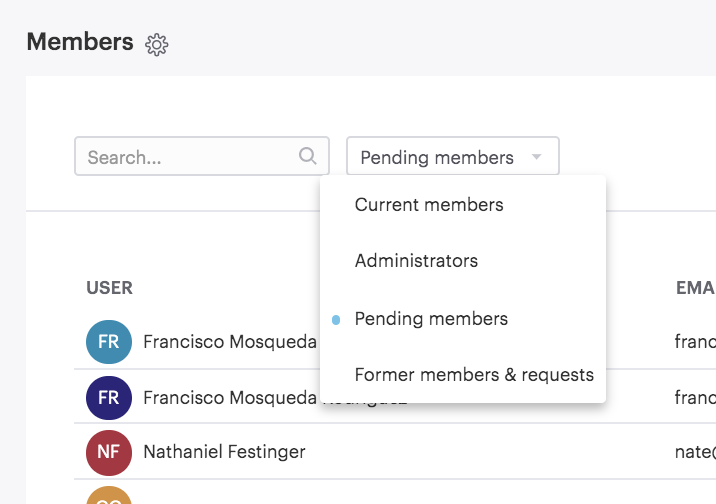
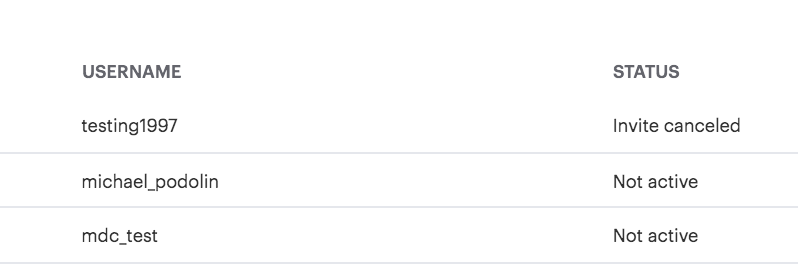
Watch this space
Our mission is to unlock and accelerate human reasoning by providing an unreasonably fast, unexpectedly delightful path to investigate ideas, analyze data, and make great decisions. There is no shortage of opportunities to do this with new features and product improvements—and we have no shortage of big plans.
Stay tuned as we share additional enhancements over the coming weeks and months, and, as always, don’t hesitate to get in touch when you have questions or feedback. We’re excited by what’s in store, and we’re sure you will be, too.
Recommended articles
- 13 Shortcuts for Mode Power Users
- An Analyst’s Perspective on COVID-19’s Economic Impact on Businesses
- COVID-19: We Don't Work Alone
